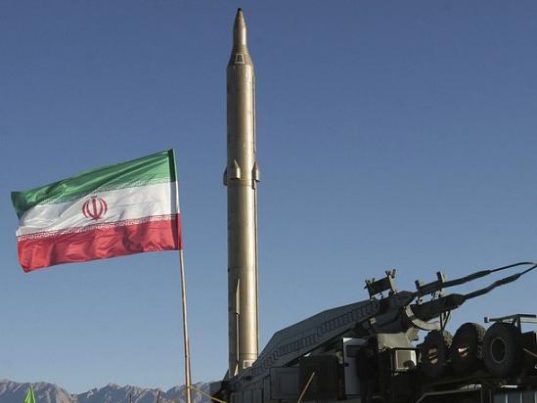
Iran violates nuclear deal with U.S. for the second time, following test of new ballistic missile
Friday, December 11, 2015 by usafeaturesmedia
http://www.nationalsecurity.news/2015-12-11-iran-violates-nuclear-deal-with-u-s-for-the-second-time-following-test-of-new-ballistic-missile

(NationalSecurity.news) The Iranian government recently test-launched a nuclear-capable ballistic missile in apparent violation of the spirit of a landmark agreement with the U.S. and five other nations, Reuters reported.
The latest test is the second since Tehran inked a nuclear containment agreement with the Obama administration last summer, Business Insider noted in a separate report. The first test, in October, involved an Emad (Pillar) surface-to-surface missile, a domestically designed system and Iran’s first long-range missile that can be precision-guided to its target, Brig. Gen. Hossein Dehqan, Iran’s defense minister, told state-run media.
“To follow our defense programs, we don’t ask permission from anyone,” he said, according to the official IRNA. Weapons analysts note the Emad is the first Iranian missile with the range to reach arch-enemy Israel.
The second test, which took place in November according to unnamed defense and intelligence officials in the U.S., was also a violation of two UN Security Council Resolutions. The officials said the test took place Nov. 21 and was within Iranian territory.
Business Insider further reported:
A Western diplomatic source said last week on condition of anonymity that the test was held near Chabahar, a port city near Iran’s border with Pakistan. He said it was a liquid-fueled missile with a 1,900 km (1,180 mile) range and was capable of carrying a nuclear warhead.
The Security Council banned Iranian missile tests in a 2010 resolution that remains in place until the six-nation nuclear deal is implemented. Under terms of that deal, which were reached July 14, most sanctions on Iran will be lifted in exchange for Tehran cutting back on research of its nuclear weapons programs. A July 20 resolution endorsing that deal “called upon” Iran to refrain from ballistic missile design and testing of systems capable of delivering nuclear weapons for up to eight years.
Critics of the Obama administration-led deal have said Iran would never live up to its terms, and the recent ballistic missile tests appear to justify those concerns.
That said, as Business Insider further noted:
The ballistic tests might complicate the deal’s implementation. Iran has violated UNSC resolutions and launched nuclear-capable long-range missiles — at the same time it’s agreed to a series of over decade-long limitations on its nuclear program. This contradictory behavior that might suggest a split within Iran’s notoriously factionalized regime.
U.S. government and defense officials likely have not been surprised by Iran’s cheating. In congressional testimony this year and in 2014, Vice Admiral James Syring, the head of the Missile Defense Agency said he believed that Iran would continue to test and improve its ballistic missiles.
In June 2014, he explicitly stated that Iran “could develop and test an ICBM capable of reaching the United States by 2015.”
Other defense officials agreed.
“While Iran has not yet deployed an ICBM, its continued efforts on space launch vehicles, along with its desire to deter the United States and our allies, provide Iran with both the means and the motivation to develop longer-range missiles, including an ICBM,” Deputy Defense Secretary M. Elaine Bunn told the Senate Armed Services Committee’s subcommittee on strategic forces in April 2014.
See also:
Tagged Under:






